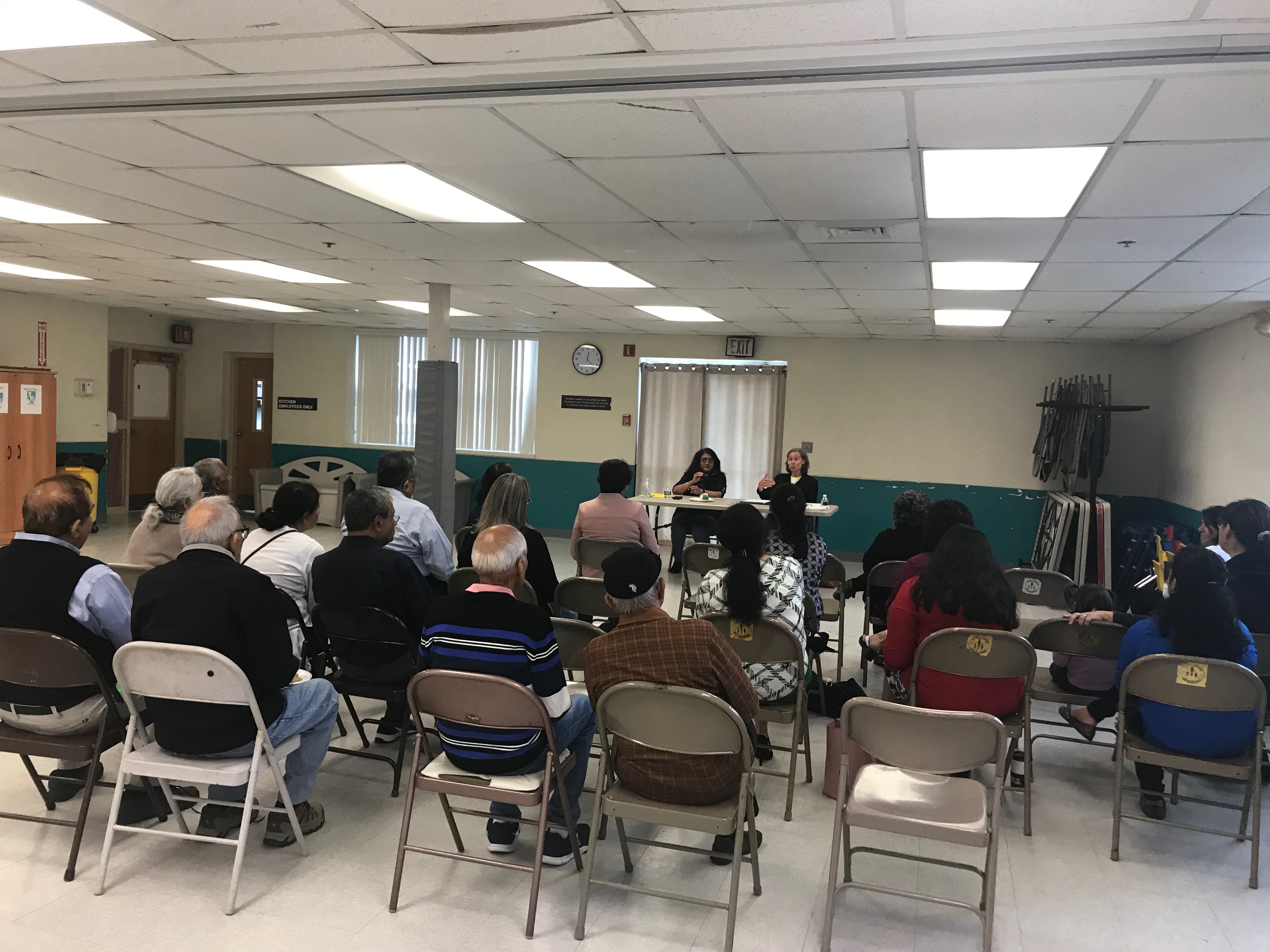On Saturday, September 14, Saheli held a workshop on issues regarding ‘immigration and public charge rule’ as a part of its Know Your Rights series in Burlington. The workshop was led by Attorneys Trupti Patel and Attorney Joanna Golding from TNP Associate. The workshop was attended by immigrants as well as non-immigrants who were interested in knowing how the public charge rule could potentially affect them and their families.
According to Attorney Golding, many of the new immigration policies are aimed at tightening existing programs and policies. The new public charge rule, that will go into effect on October 15, is a more stringent re-interpretation of earlier immigration provisions relating to inadmissibility which was used to determine if a person was likely to become a ‘public charge’ or dependent on the government in any way.
Presently it includes public benefits like cash assistance for income maintenance and long-term medical care. Based on the proposed changes by the current administration, public charge categories can now include certain health, nutrition and housing benefits that were previously not included. The rule will now weigh positive and negative factors in judging admissibility. Factors could include age, health, income and English proficiency. But the changes are deliberately complicated and confusing. Attorney Patel stated, “The interpretation of the new policy is very subjective and can be inconsistent. It’s up to the particular official judging the case to determine if the positive factors outweigh the negative ones.” This new rule could have an adverse effect on people applying for green card and certain visas.
She expressed concern about individuals who need healthcare and are wary to use it due to the proposed changes. However, given that this rule is facing lawsuits from many states, there is increased uncertainty regarding the implementation of the changes.
There are certain categories of visas that are exempt from this rule. These are T-Visa, U-Visa, VAWA and Asylum visas, which are most often used by survivors of domestic violence, and those applying for citizenship. But Attorney Golding pointed out, “U-visas are generally taking much longer to process. This is largely due to the large number of applicants and limited resources to process the applications in a timely manner.” Another area for concern among the domestic violence advocates is immigration abuse. The spouses, often on H1B visas, don’t file for a renewal of the wives’ H4 dependent visa. Due to the delay in renewing the visa they inadvertently become undocumented, and many have to rely on public benefits. Attorney Patel stressed on the importance of making individuals realize the importance of keeping track of their status.
Other issues that were discussed related to use of medical benefits or MassHealth by undocumented immigrants and how it could adversely affect their immigration process. The workshop provided important information about immigration policies and rules that will affect a wide variety of immigrants in the US.



